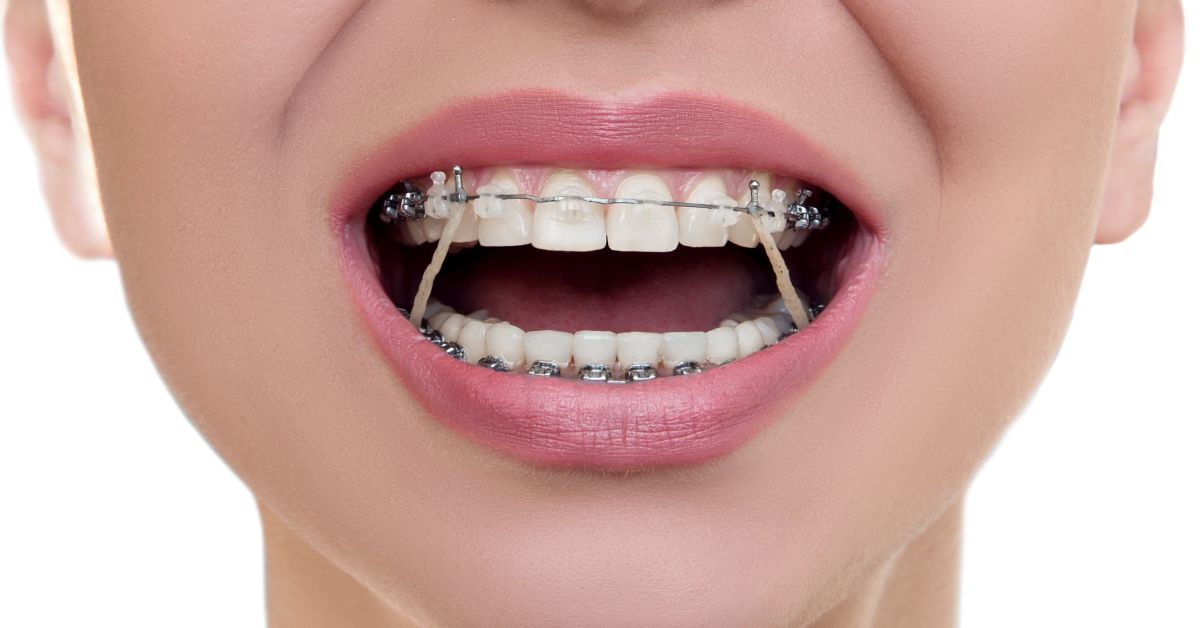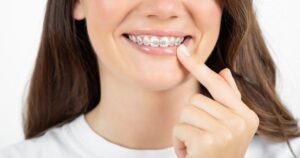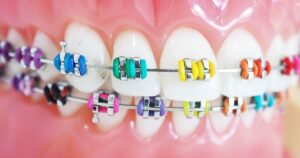Braces are orthodontic devices used to straighten and align teeth. They consist of metal brackets and wires that apply gentle pressure to move teeth into the desired position, improving both appearance and bite.
The modern smile transformers, work their magic by gently guiding teeth into perfect alignment. These trusty orthodontic tools, made of metal brackets and wires, bring not only a straighter smile but also improve dental health. Let’s explore how braces can be your ticket to a confident and healthy grin.
They consist of metal brackets attached to the teeth connected by wires, creating a gentle pressure to shift teeth into the desired position. Braces are commonly used to improve both the aesthetics and functionality of the bite.
How Do Braces Work?
The system comprises small brackets attached to each tooth and connected by wires. Over time, these wires are adjusted by orthodontists during periodic appointments, gradually guiding the teeth into their desired positions. This process capitalizes on the flexibility of the jawbone, allowing the teeth to shift and align effectively.
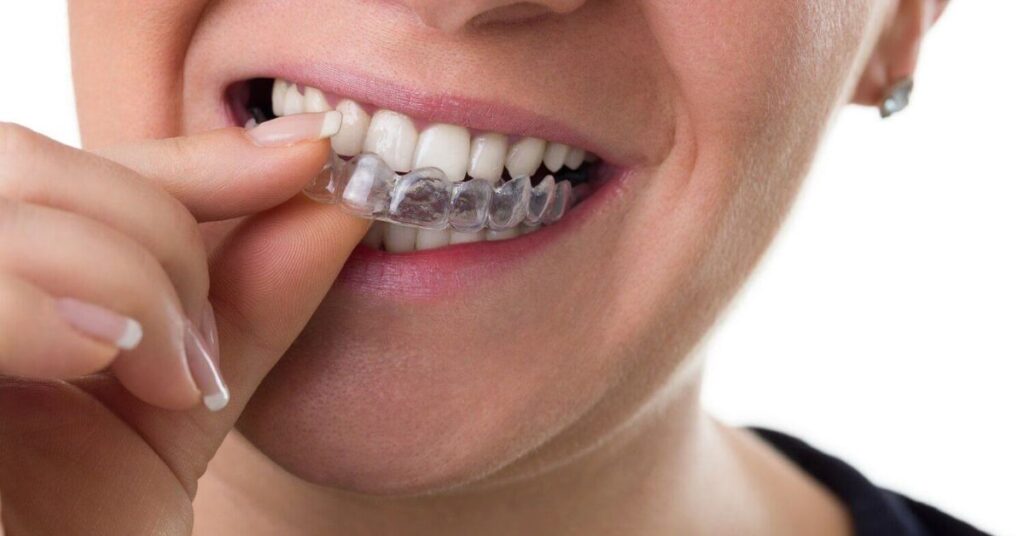
The pressure exerted by braces induces a biological response in the surrounding bone. As the teeth move, the bone around them remodels to accommodate the new positions. This adaptive process is crucial for the stability of the corrected alignment. The consistent application of pressure, controlled by the orthodontist through adjustments, ensures a gradual and controlled movement that minimizes discomfort while optimizing results.
Read This Blog: Dental Insurance
Consistency is a key factor in the effectiveness of braces. Patients need to follow orthodontic instructions diligently, wearing rubber bands and any additional appliances as prescribed. Additionally, maintaining excellent oral hygiene is essential. Regular brushing, flossing, and attending scheduled check-ups contribute to the overall success of the braces treatment, ensuring not only straighter teeth but also a healthy and confident smile.
How Long Do You Have to Wear Braces?
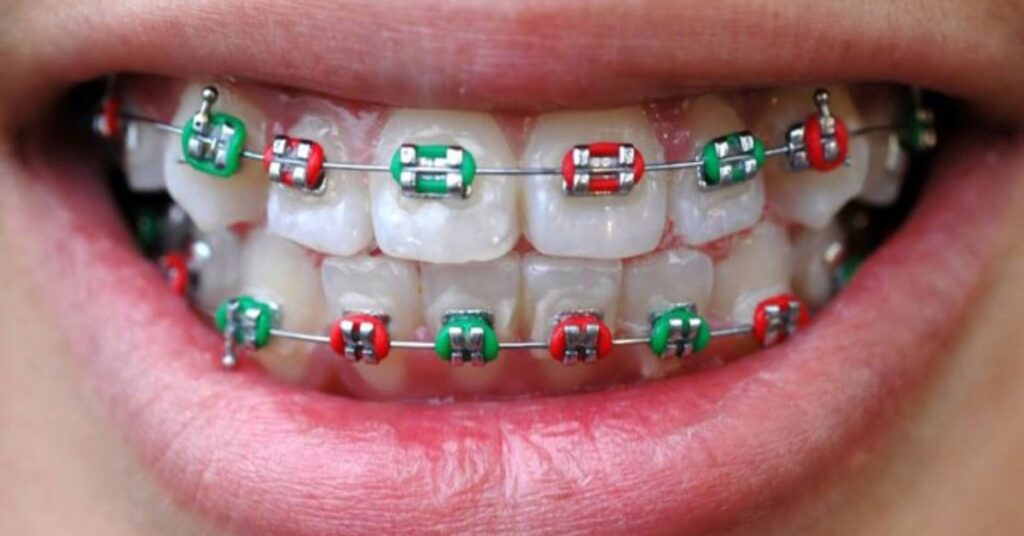
Wearing braces typically spans one to three years, though individual timelines may vary. Factors influencing the duration include age, the severity of misalignment, and adherence to orthodontic guidelines. While some might see results sooner, patience and commitment to the process are key for optimal outcomes. Your orthodontist will provide personalized insights into your specific case.
Regular orthodontic appointments are crucial for monitoring progress and making necessary adjustments. Consistent check-ups enable your orthodontist to ensure the treatment stays on track and address any emerging issues promptly. Skipping appointments can lead to delays, emphasizing the importance of maintaining the recommended schedule for a timely and successful braces experience.
Read This Blog: Power Chains Braces : Will They Make My Smile Beautiful?
To expedite your braces journey, maintain good oral hygiene with regular brushing and flossing. Follow dietary restrictions to prevent damage to braces and enhance their effectiveness. Wear rubber bands and any additional appliances consistently as instructed by your orthodontist. By incorporating these practices, you contribute to a smoother and more timely braces experience, ultimately leading to a beautifully aligned smile.
5 Tips for Getting Your Braces Off on Time
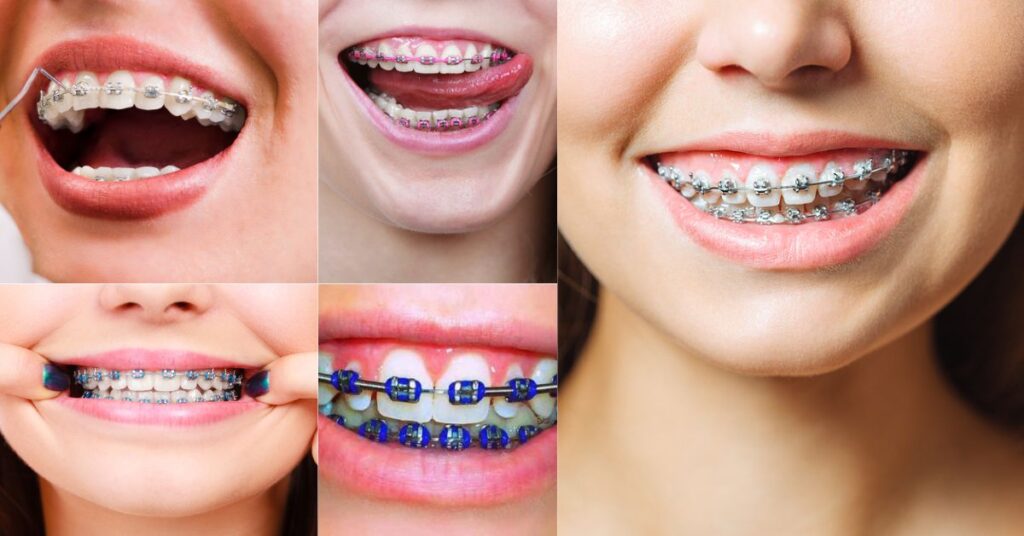
Various factors can potentially disrupt the progress of your braces treatment, ranging from improper usage of rubber bands to breakage of brackets or wires. To ensure a smooth and timely journey toward a straighter smile, it’s crucial to adopt specific practices. Here are some valuable suggestions to keep your braces treatment on track:
1. Follow orthodontist instructions:
Listen carefully to your orthodontist’s advice and follow their instructions diligently. Adhering to the prescribed guidelines, such as wearing rubber bands or headgear, is crucial for achieving the desired results. If there are specific care routines or precautions, make sure to incorporate them into your daily routine. Your orthodontist is your guide to a successful braces journey, so keeping open communication is essential.
2. Good oral hygiene:
Maintain excellent oral hygiene by brushing your teeth after every meal and flossing regularly. Pay extra attention to cleaning around the brackets and wires to prevent plaque buildup. Consider using interdental brushes or a water flosser for thorough cleaning in hard to reach areas. A healthy mouth ensures that your teeth move into their correct positions efficiently.
3. Attend regular appointments:
Keep up with your scheduled orthodontic appointments, which are crucial for monitoring your progress. These appointments allow your orthodontist to make necessary adjustments, ensuring the treatment stays on track. Missing appointments can lead to delays, so prioritize attending all scheduled check-ups and adjustments. Regular visits are key to a timely and successful completion of your braces journey.
4. Watch your diet:
Follow the dietary restrictions provided by your orthodontist to avoid damaging your braces. Stick to soft and braces-friendly foods, and steer clear of hard, sticky, or crunchy snacks. Making wise food choices contributes to the effectiveness of your braces and helps prevent setbacks. Your diet plays a significant role in achieving a beautiful, straight smile on schedule.
5. Be consistent:
Wear rubber bands and any additional appliances, as prescribed by your orthodontist. Consistency is crucial for ensuring that the applied forces are working continuously to align your teeth. Establish a routine to regularly check and replace any worn-out or damaged components of your braces. You contribute to a smoother and more timely braces journey by staying consistent with your orthodontic care.
Summary
In essence, the article delves into the nuances of braces treatment, offering insights on maintaining its trajectory toward success. By emphasizing the importance of following orthodontist instructions, it highlights the pivotal role that proper rubber band usage plays in achieving optimal results. The cumulative impact of consistent adherence to guidelines sets the foundation for a promising and timely completion of the braces journey.
Furthermore, the summary underlines the significance of meticulous oral hygiene practices in supporting the overall effectiveness of braces. Regular brushing and flossing, especially around brackets and wires, are highlighted as essential elements contributing to a healthy oral environment. With each diligent step, the article stresses how individuals can actively participate in fostering an ideal setting for teeth to align and braces to work optimally.
In conclusion, the article encapsulates the essence of maintaining a successful braces treatment by attending regular orthodontic appointments. These appointments serve as crucial checkpoints, allowing professionals to make necessary adjustments and ensure the treatment stays on course. The article advocates for consistency in dietary choices and the dedicated wearing of rubber bands as additional keys to unlocking a smooth and timely journey toward a beautifully aligned and confident smile.
Frequently Asked Questions
How long does the average braces treatment last?
The duration varies, but it typically ranges from one to three years, depending on factors like age, severity, and adherence to guidelines.
Can I speed up my braces treatment?
Following orthodontist instructions, maintaining good oral hygiene, and attending regular appointments can contribute to a more efficient and timely outcome.
What foods should I avoid with braces?
Stick to soft and braces-friendly foods, avoiding hard, sticky, or crunchy snacks to prevent damage and promote faster progress.
How often should I wear rubber bands?
Wear rubber bands as directed by your orthodontist consistently, as they play a crucial role in applying the necessary forces for teeth alignment.
What happens if I don’t follow dietary restrictions during braces treatment?
Not adhering to dietary restrictions can lead to damage, and setbacks, and prolong the treatment duration, emphasizing the importance of following guidelines.
